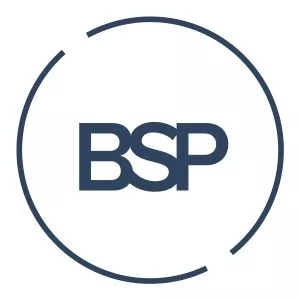- within Employment and HR, Wealth Management and Insolvency/Bankruptcy/Re-Structuring topic(s)
- in Asia
On 12 May 2022, the Committee on Economic and Monetary Affairs within the European Parliament (hereafter the "Committee") issued a draft report (the "Draft Report") suggesting certain amendments to the European Commission's proposal for a Council directive laying down rules to prevent the misuse of shell entities for tax purposes (commonly referred to as "ATAD 3"). The Draft Report, even though without legal binding effect, proposes some important alterations to the previous text, as detailed below, which have to be considered should the point of view of the Committee be followed throughout the legislative procedure. For more details on ATAD 3, we invite you to refer to our previous publication dated 10 January 2022.
Key Features
At first, the Committee proposes certain additional considerations be added to the recitals. In essence, it recognises that shell entities may also be used for legitimate purposes but criticizes the loss of tax revenue resulting of the abuse of such structures. Further, it emphasizes that a legislative act aiming at regulating the matter must be proportionate, effective and neutral from a taxation point of view. The Committee thus also proposes some slight alterations to certain substantive requirements with a view to better suit the objectives laid down by ATAD 3.
The Committee recommends to abolish the suggestion of the Commission to leave the means free to the Member States to either (i) refuse the issuance of a certificate of residence if a situation captured by the directive arises (passing the gateway test and not meeting the minimum substance requirements) or (ii) issue a certificate of residence with a mention restricting the use of such certificate by the taxpayer for the tax benefits foreseen in applicable double tax treaties or secondary EU legislation aimed at alleviating double taxation (Parent Subsidiary Directive and Interest and Royalties Directive). Instead, the Committee supports the view that in such an event the issuance of the certificate should be denied while adding the obligation for the tax authorities of the relevant Member State to duly justify the grounds on which the decision was based. (Amendment 23, proposing a new text for Article 12, paragraph 1, a)
Further, the Committee proposes to add to Recital number 16 a reference to the possibility of joint audits allowing for the pooling of expertise and enhancing audit acceptance. Here, the Committee refers to the Council Directive (EU) 2021/514 establishing a uniform framework for joint audits, which it suggests should be used, where appropriate. If such a joint audit, as foreseen in the amended Article 15, paragraph 1, shall prove impossible for the requesting authority due to legal reasons, the authority of the requested Member state shall conduct a unilateral tax audit within one month of the receipt of the request and conduct it in accordance with its national law. (Article 15, paragraph 1, a (new))
If adopted, the Committee proposes in Amendment 11 that the threshold of Article 6, on Reporting of Undertakings, paragraph 1, subparagraph 1, point (a), initially set by the Commission to 75% of the revenues accruing to the undertaking in the two preceding tax years being relevant income be increased to 80%. A new reference to Article 4 of the revised proposed directive is inserted here.
Additionally, the Committee suggests that the threshold under Article 6 paragraph 1, subparagraph 1 point (b), (i) on the determination of whether an undertaking is engaged in cross border activity, be lowered from 60% to 55% of the book value of the undertaking's assets in the sense of Article 4 points (e) and (f) when it comes to assets located outside the Member State. Simultaneously the Committee proposes an increase of the threshold under the same Article paragraph 1, subparagraph 1 point (b), (ii) from 60% to 65% when assessing the undertakings relevant income's portion earned or paid out via cross-border transactions.
Outsourced administration of day-to-day operations and decision-making also playing a role under ATAD 3, the Committee proposes that an exception should be inserted in Article 6, paragraph 1, subparagraph 1, point c, foreseeing that the outsourcing of such functions to an associated enterprise of the undertaking in question located within the same jurisdiction should be disregarded for the purpose of the test. This proposed change may benefit multinational groups with a number of entities, which are managed by a local intra-group service providing entity with adequate substance.
When it comes to the 5 full time employees carve out, the Committee holds the view that additionally, for the carve out to apply, the employees should be working in the Member State in which the undertaking in question has its fiscal residence.
Moreover, the Amendment goes further in Article 8 paragraph 1 and 2, abolishing the adjective 'satisfactory' when qualifying the supporting documentation to be provided as evidence in accordance with Article 7(2) indicating a compliance with all the minimum substance requirements.
A major change supported by the Committee is to exclude from the requirements of ATAD 3 entities owned by regulated financial undertakings and which have as their objective the holding of assets or the investment of funds, thus effectively recognising that the use of holding entities by financial undertakings are a legal structuring mechanism that does not lead to harmful tax evasion (article 6, paragraph 2, point ba).
Another change supported by the Committee under Amendment 26 relating to Article 14 paragraph 2 is the reduction of the penalty foreseen by the Draft Report in the event an undertaking does not comply with its reporting obligation under Article 6 or makes a false declaration in the tax return under Article 7 from 5% of the net turnover down to 2.5% of the turnover in the relevant tax year.
The foreseen entry into force has also been delayed to a further point in time, namely the 1 January 2025.
Conclusion
The Committee helpfully increases the coherency of the proposal in certain regards and actively recognizes the legitimate use of shell entities with minimal economic substance as long as they are not misused for tax avoidance. This is plainly demonstrated by excluding form the scope of ATAD 3 holding companies that are held by regulated financial undertakings and which have as their objective the holding of assets or investments of funds. It now makes more specific references to already enacted EU legislation and cross references to certain provisions within the proposal itself, where appropriate. The legislation now appears to be clearer and, all things considered, more balanced. Rights of taxpayers are more respected when nebulous qualifications such as 'satisfactory' are omitted, creating more legal certainty. The proposal to disregard intra-group outsourcing of decision-making functions for the purpose of the gateway test is also a welcomed change with respect to the original draft issued by the European Commission, which takes into account the ways in which certain multinational groups organise themselves. Moreover, the fact that under the Committee's proposal the denial of a certificate of fiscal residence must be duly motivated increases legal certainty further. Penalties for non-compliance are reduced and cooperation within the EU strengthened due to the joint tax audit possibility enshrined in the amended version of the proposal. Unfortunately, other key concepts of ATAD 3 such as 'employees' or 'own premises' as well as 'premises for its exclusive use' have not been elaborated further.
The content of this article is intended to provide a general guide to the subject matter. Specialist advice should be sought about your specific circumstances.




